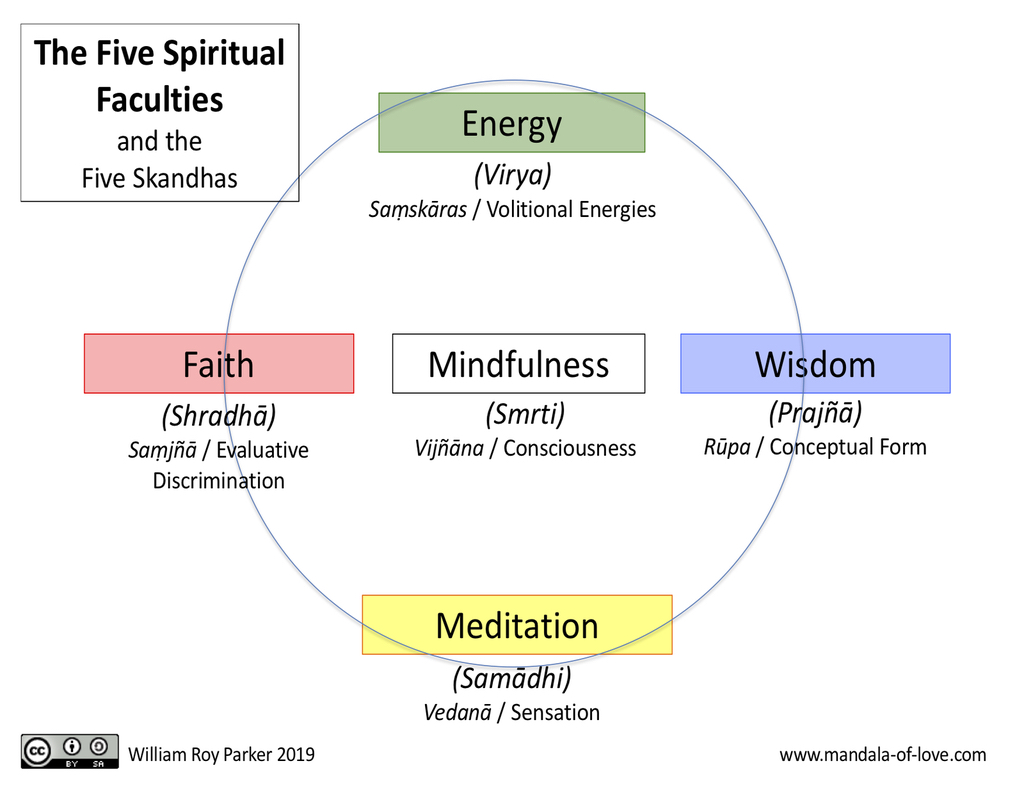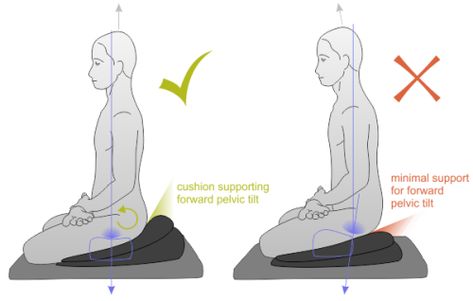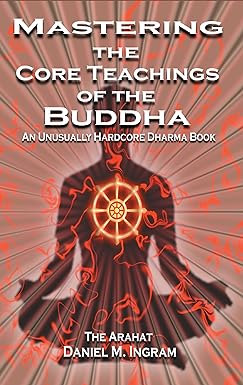
The five spiritual faculties are said to be like a cart with four wheels and a driver.
If any of the four wheels is too small, wobbly, or not in balance with the others,
then the going on the spiritual road will be rough.
The four wheels symbolize
faith, wisdom, energy, and concentration.
If the driver is not paying attention there will also be problems.
The driver symbolizes Mindfulness.

This is a really useful teaching and quite a fine list.
The trick is that
faith and wisdom must both be strengthened and kept in balance,
as must energy and concentration.
Mindfulness may always be increased,
so for this one the sky is the limit,
but no need to obsess about it.

FAITH AND WISDOM
Let’s start with faith and wisdom.
Lack of faith
can lead to cynicism, giving up, half-hearted effort, and bitterness.
Excess faith can lead to blind adherence, dogma, sectarian arrogance,
being disappointed or disillusioned when you realize that
your teachers do not meet all your expectations,
an inability to realistically examine and revise your approach to spirituality
when necessary, and many other problems.
Insufficient wisdom can lead to
stupidity, blindness, gullibility, and narrow-minded or
agenda-motivated interpretations of the teachings.
Wisdom can become distorted by the intellect
and this can lead to harmful or treacherous cleverness
and vanity about our insights,
which can lead to spiritual bullying and megalomania,
rather than mature, heartful wisdom.
Lack of wisdom can lead to an overemphasis on
acquiring knowledge over practice and direct experience,
and desperate attempts to think your way to enlightenment.
You can see that:
an excess of intellect is often a sign of a lack of faith,
and an excess of faith is often marked by a lack of wisdom.
When faith and wisdom are in balance
there is a heartfelt steadiness,
a quality of balanced and genuine inquiry, an ability to persevere,
and with these an unmistakable humility.
Faith at its best produces deep gratitude for life in all its richness,
for its lessons, difficulties, and blessings, and for the chance to awaken.
It provides enthusiasm, galvanizes energy, serves as a support in times of trouble, and
allows us to move forward without holding back.
Faith allows us to realize that some truly brilliant, dedicated, and wise people
have come before us and left effective methods and maps that we can follow
to achieve what they achieved.
Wisdom at its best comes from
deep and direct perceptual investigation of life, as it is,
right here and right now, and goes
far beyond the reach of reason and rational thought,
transcending the paradoxes that these inevitably create.
In the end,
wisdom and faith converge.

ENERGY AND CONCENTRATION
The same principles apply to energy and concentration;
they must both be strengthened but also in balance.
With insufficient energy,
there is sloth, torpor, dullness, and tiredness.
When there is excess energy, the mind and body may be
restless, agitated, jumpy, strained, tense, and irritable.
With excess energy,
we may be completely unable to focus at all because
we are overemphasizing effort
at the expense of focusing on the object of meditation.
~~~
With insufficient concentration,
the mind won’t stay with its chosen meditation object
and tends to get lost in thought or snagged by stories.
With excess concentration,
we can become strained due
to focusing too narrowly and tightly for reality to “breatheâ€.
Again,
too much energy is related to a lack of concentration and vice versa.

When this balance is right,
the posture is straight and steady but not rigid,
and the mind is bright and focused steadily on objects
and their back-and-forth interplay.
As the balance of energy and concentration matures,
it may feel, strangely, that there is little energy or much concentration.
Things may be perceived clearly and with very little effort.
Experience may seem quite spacious and inclusive
rather than narrowly focused and concentrated.
These surprise many people,
and they may cling to a less mature phase of developing concentration,
which feels narrow and tight, and the less mature phase of developing energy,
which feels effortful.
When energy and concentration mature, the feel is
spacious and easy, natural and clear, gentle and broad, rich and subtle,
all at once.
Everything is just showing itself all the way through on its own.

MINDFULNESS
Mindfulness is in a category all by itself,
as it can potentially balance and perfect the remaining four spiritual faculties.
This does not mean that we shouldn’t be informed by the other two pairs,
but that mindfulness is extremely important.
Mindfulness means knowing what is… as it is…
right now.
It is the quality of mind that knows things as they are.
Really,
it is the quality of sensations manifesting as they are,
where they are, and on their own.
However,
initially it appears to be something we create and cultivate,
and that is okay for the time being.
If you are trying to perceive the sensations that make up your experience clearly
and to know what they are,
you are balancing energy and concentration, and faith and wisdom.
Due to energy,
the mind is alert and attentive.
Due to concentration,
it is stable.
Faith here may also mean acceptance,
and wisdom here is clear comprehension.
Mindfulness means being very clear about our human, mammalian reality
as it is.
It is about being here now.

Truth is found in the ordinary sensations that make up our experience.
If we are not mindful of them or reject them because we are looking for
“progressâ€, “depthâ€, or “transcendenceâ€,
we will be unable to appreciate what they have to teach,
and be unable to do insight practices.
It is aptly said that:
when balanced and perfected,
the five spiritual faculties as they apply to insight training
are a sufficient cause for Awakening.
~~~

This article was Inspired by
Buddha’s step by step instructions to obtain Enlightenment
as refined by The Arahant Daneil M. Ingram.
